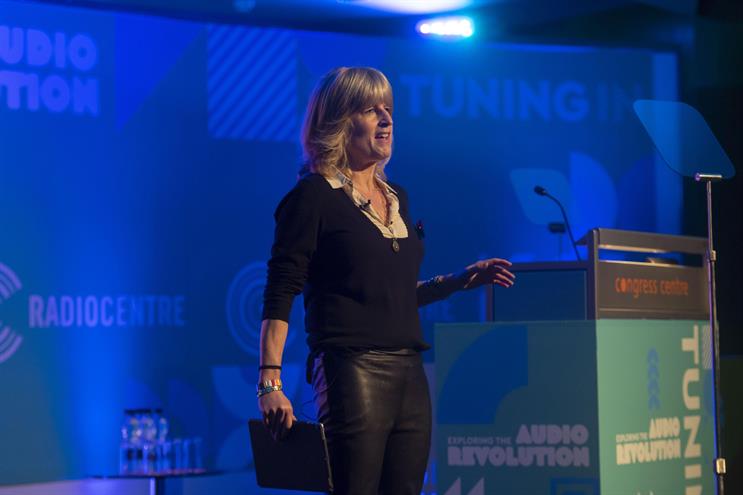
Rachel Johnson, LBC presenter and sister of Boris Johnson, has urged the government not to “shift the goal posts” to hire Paul Dacre as the next chair of the media regulator Ofcom in a speech that also touched on Channel 4's public ownership.
Dacre, the former long-serving editor of the Daily Mail, is the Conservative government’s preferred candidate for the role but has already failed to pass the interview process once, with the selection panel ruling he was “not appointable” at the final stage.
Despite this, the government confirmed Dacre will be given a chance to reapply, which Johnson warned would be a mistake as she made a broader point about ensuring the media industry watchdog would not be hostile to public broadcasters.
“There’s more choice than ever before in accessing quality content, but that is at risk in the television universe," she said.
She added: "If there is going to be a viable environment for this kind of content to survive, providers and producers, like the BBC and Channel 4, have got to feel they are working not in a hostile environment, but in an environment where the government actually encourages British producers and creatives to tackle British stories to British audiences that we can then sell globally, and everybody’s happy.
“[In] putting someone in Ofcom, let’s not as we did with (former MP) Owen Patterson, simply to get the result you want, change the rules, the ref and the goalposts. So let’s not just put in the former editor of the Daily Mail because that’s the one they want, let’s find somebody who wants British producers to tell British stories to British audiences which we can then all sell overseas.”
The decision to hire the next Ofcom chair, an influential role when it comes to how media is regulated, ultimately rests with the secretary of state for digital, culture, media and sport, Nadine Dorries.
Johnson described Dorries as “a good girl”, who “doesn’t like people being rude, entitled and arrogant”, and said two other big decisions in her in-tray are the privatisation of Channel 4 and the BBC.
Although government threats to privatise both have been around for years, a decision on Channel 4’s future ownership is expected to take place in the coming months after a public consultation on the matter closed in September.
Johnson, an experienced journalist, who has worked in TV, warned that the risk of Channel 4 being bought by a foreign commercial media giant such as Viacom (Channel 5's owner) or Comcast (Sky's owner) is that it could change Channel 4’s unique remit to produce a certain quota of culturally challenging British content and commission UK production houses.
She believes Dorries can be convinced that Channel 4 should remain publicly owned but privately funded, largely through TV advertising.
“I think a Tory government is always minded to privatise in the same sense a Tory government is always against public sector broadcasting, but with Nadine Dorries, I think if Channel 4 can make a sort of alliance with her and say, ‘If we keep it in-house it’s much more likely we can keep control over it, we can keep making British programmes for British people,’ she might buy that, you know, ‘We can have more control on its eventual entity’,” Johnson said.
“And also, once you’ve sold something, you can’t really keep the remit as tight as you have when it’s a £1.2bn asset currently held by the government, that I think is the main thing in her in-tray, the BBC is the next.”
Johnson also shared an anecdote about how sacred advertisers are considered at Global, which owns her employer LBC.
“At LBC at one point during one of my first broadcasts I said something about, ‘as you heard in the ad...’ and I said something, and the producer said: ‘We never talk about the ads, the ads are the lifeblood of the station...you just don’t talk about them, the advertisers are too important, you can’t reflect on the ad, the content of the ad.’
“So then I realised this is a commercial brand, that comes first, the callers come second, the presenters come third, in my view anyway.”



.jpg)
.jpeg)
